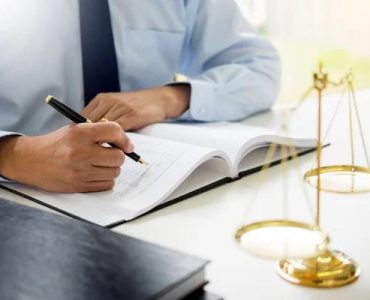These claims can involve a wide range of scenarios, including industrial accidents, chemical spills, air pollution from factories or vehicles, water contamination incidents, and more. One key aspect of personal injury claims in relation to pollution control regulations is establishing liability. Determining who is responsible for the release or emission of pollutants can be complex due to multiple potential parties involved – including manufacturers, operators of facilities emitting pollutants into the air or water bodies nearby residents affected by polluted environments. To successfully pursue a personal injury claim in this context requires gathering evidence that demonstrates negligence on behalf of the responsible party. This could include proving that they failed to comply with relevant environmental regulations or standards designed specifically for controlling pollutant emissions. In addition to demonstrating negligence on part of the responsible party(s), it is also crucial for claimants in personal injury cases related to pollution control regulations to establish causation between their exposure and resulting harm or illness.
This often involves presenting medical records showing how exposure led directly (or indirectly) caused their injuries. Furthermore, it’s important for those seeking compensation through personal injury claims related to pollution control regulations understand any limitations imposed by statutes of limitations – which vary depending on jurisdiction – as well as any specific requirements set forth by regulatory agencies overseeing environmental protection efforts. While pursuing a personal injury claim can be challenging due its complexity and potential legal hurdles involved; successful outcomes provide victims with financial compensation necessary cover medical expenses, lost wages, pain and suffering, and other damages resulting from their exposure to pollutants. Moreover, personal injury claims can also serve as a deterrent for companies or individuals responsible for pollution law firms near me incidents. By holding them accountable through legal means, it sends a message that negligence in adhering to pollution control regulations will not be tolerated – ultimately encouraging better compliance with environmental standards.
In conclusion, personal injury claims related to pollution control regulations play an essential role in ensuring accountability and compensation for individuals harmed by exposure to hazardous substances or pollutants. These claims help victims seek justice while promoting adherence to environmental regulations designed to protect both the environment and human health.” As the world becomes more environmentally conscious, businesses are increasingly adopting green strategies to reduce their carbon footprint and promote sustainability. While these initiatives are commendable, they can also present unique challenges when it comes to injury claims. Green business strategies often involve implementing new technologies or processes that may not have been thoroughly tested for safety. For example, a company might install solar panels on its roof to generate renewable energy but fail to properly secure them, leading to potential hazards for employees or customers. Similarly, a restaurant might switch from plastic straws to biodegradable alternatives without considering the risk of choking or other injuries.



